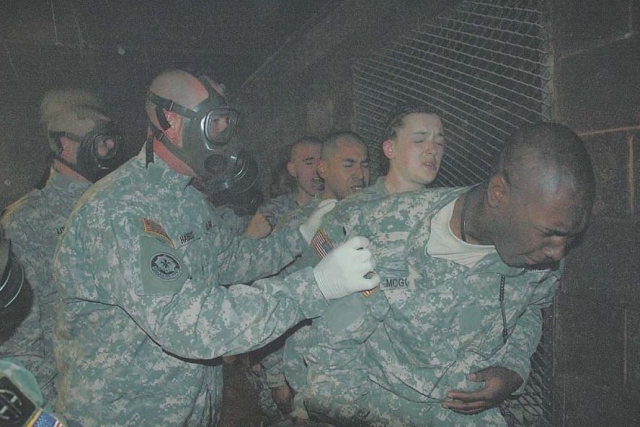Canadian, UK Universities Create Sponge to Neutralise Chemical Warfare Agents

A team consisting of university experts from Canada and the United Kingdom have created “Metal-organic framework (MOF)-containing polymer sponge” that can absorb lethal chemical warfare agents.
Dr Simon Holder, Reader in Organic Chemistry at the University of Kent (UK) and Dr Barry Blight, Associate Professor of Chemistry at the University of New Brunswick (Canada), have developed a new method for containing and deactivating neurotoxic chemicals like VX and sarin.
These weapons, known as nerve agents or neurotoxins, are highly potent and fast acting. Small doses can cause rapid paralysis and death, as the chemicals disrupt the connection between the body’s nerves and muscles. These internationally banned liquids are aerosolised purposely to inflict damage on large geographical areas and are considered to be weapons of mass destruction (WMD’s).
The sponge swells and absorbs dangerous neurotoxins to make them safer to handle. It contains the MOF chemical catalyst, created to accelerate the chemical’s breakdown, diminishing the neurotoxins into safer components.

The project was funded by the Defence Science and Technology Laboratory (Dstl) of the UK Ministry of Defence. In March 2018, British media reported that the UK government plans to invest £48 million ($66 million) to build a chemical weapons research facility at the Dstl in Porton Down.
To research this safely, researchers used substances to simulate the presence of neurotoxins without risking exposure to dangerous chemicals. Following this, Dstl tested the prototype material with the real nerve agent to confirm the effect.
“Less than five kilograms of the MOF-containing polymer sponge can absorb, immobilize, and safely destroy a 55-gallon drum of these toxic chemicals. It is very exciting to consider the potential this has in combatting dangerous chemicals in the future,” said Dr. Holder, who is also director of research at Kent’s School of Physical Sciences.













